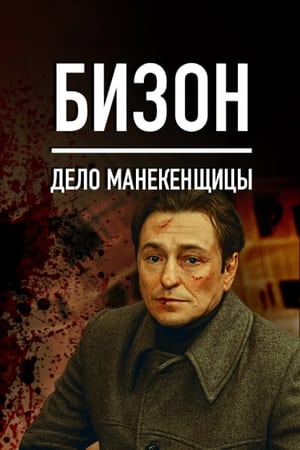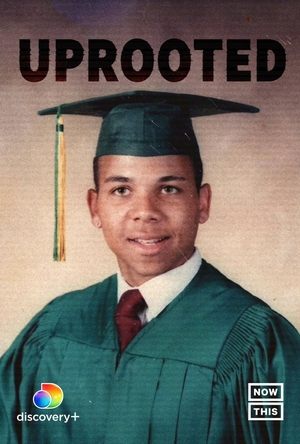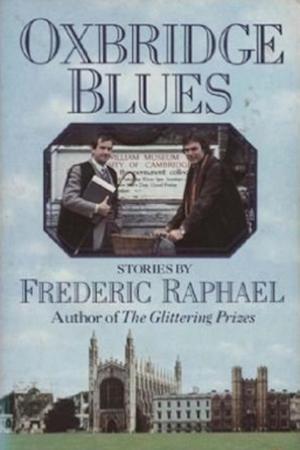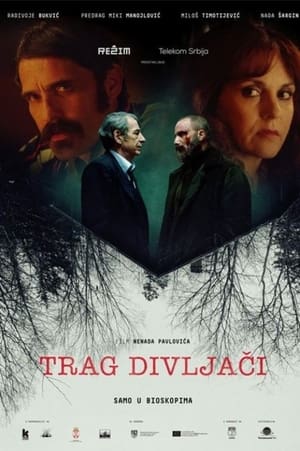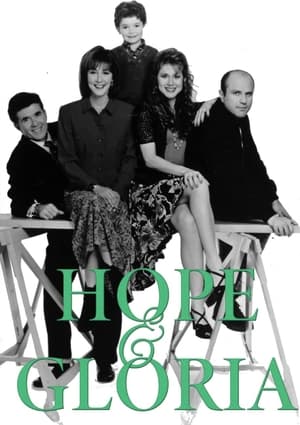Crown Court
Crown Court is an afternoon television courtroom drama produced by Granada Television for the ITV network that ran from 1972, when the Crown Court system replaced Assize courts and Quarter sessions in the legal system of England and Wales, to 1984.
Type: tv
Season: 13
Episode: N/A
Duration: 23 minutes
Release: 1972-10-11
Rating: 5.4
Season 1 - Crown Court
1972-11-10
Mr Simpson was admitted to hospital following a car crash in Fulchester. He was examined by doctors and treated for minor injuries before being discharged. Moments later, Mr Simpson collapsed on the forecourt of the hospital and was rushed back inside for emergency brain surgery, from which he died. His widow Mrs Simpson is suing the hospital for neglect, claiming that the doctors who initially treated her husband missed the injury.
1972-12-10
Wealthy Property developer Emmanuel Lieberman is trying to evict his former fiancé Delia Savage from an exclusive penthouse apartment overlooking London's Green Park. He claims that he merely allowed her to live in the apartment until they were married, but Ms Savage insists that Mr Lieberman gave her the property as an engagement gift. Mr Lieberman says the engagement was called off when he discovered his own son naked with Ms Savage when he returned home unexpectedly from a trip to San Francisco. Did he really give the apartment as a gift? Or is he simply trying to recover the prestigious property in order to sell it on at huge profit?
Helen Lord, a maths teacher at Fulchester's John Fordhurst secondary school, is accused of wounding a police officer with a chisel. The court will hear that Miss Lord went to Calderley police station to speak to Detective Bretherton about the contents of a letter which he had sent to the headmistress of the school, advising her that Miss Lord was not suitable to work with children. When she was denied access to Detective Bretherton, she 'went berserk' and attacked the desk sergeant. The decision of the headmistress to employ Miss Lord without checking references is also being brought into question.
1972-01-11
Following an armed raid by four masked men on a Fulchester bank in which £30,000 was stolen, local villain Harry Bryant was identified as one of the robbers. In court, he decides to sack his defence team at the start of the trial and defend himself. He bases his defence on unreliable identification and on the fact that due to his criminal background, the police are determined to 'fit him up' for a crime that he did not commit.
1972-02-11
1972-03-11
1972-12-14
One of the accused, Trevor Luckhurst, takes the witness stand, but his behaviour doesn't help his case.
1972-12-15
In his summing up, the defence barrister James Elliot QC accuses the night watchman of extreme anti-left wing bias. Could this save the young couple?
1973-07-18
1973-07-27
1973-08-01
1973-08-08
1973-08-22
1973-08-29
1974-09-11
1974-09-18
1974-09-25
1974-10-16
1974-11-06
1974-11-13
1974-11-20
1974-11-27
1974-12-04
1975-01-08
1975-01-15
1975-01-29
1975-02-05
1975-02-12
1975-02-19
1975-02-26
1975-03-05
1975-03-12
1975-03-19
1975-03-25
1975-04-02
1975-04-09
1975-04-16
1975-04-30
1975-05-07
1975-05-14
1975-05-21
Season 2 - Crown Court
1973-01-03
George Robins is a second hand car dealer and well-known ladies man. He has disappeared. Blood stains were found at his country cottage. A local car thief, Harold Barnes, is charged with his murder, but Barnes claims that Robins has not been murdered but has faked his own death so that his wife can claim a large insurance pay-out. The prosecution will try to prove that Barnes has indeed murdered Robins even though no body has ever been found.
1973-01-04
Detective Inspector Robert takes the stand to describe the investigation into the disappearance of George Robins and the arrest of Harold Barnes. Dr. John Gould gives a breakdown of the forensic evidence and the link to Barnes.
1973-01-05
Defendant Harold Barnes alleges that George Robins is still alive. Prosecutor Jonathan Fry QC causes a stir when he calls Robins as a witness. Barnes' wife Catherine denies the she had an affair with Robins and alibis her husband.
1973-01-10
The spurned lover of a Church of England clergyman is accused of blackmail after threatening to expose their affair unless the vicar pays £400.
1973-01-11
When Rev. Frank Warrender gives contradicting evidence, Charles Lotterby asks the judge to treat him as hostile witness. Police Inspector Savage confirms that it was Mrs Warrender who brought the blackmail letters to the police.
1973-01-12
Following Janet Brewer's revelations about her health and her breakdown, the judge turns down Barry Deeley's request to dismiss the case. Despite pleas from her doctor and father the judge maintains there is still a case to answer.
1973-01-17
A military historian has been accused of libel by a British Army Major following the publication of a book on the British Army's involvement in the Korean War. The author claims that the Major abandoned his post and left his company of soldiers to be massacred by the North Koreans. The Major insists that he was the last man standing in the conflict and escaped to safety only after the rest of his company was wiped out. Was the Major a hero, or a coward?
1973-01-18
Morton Lass, an American tank commander seconded to Hill 329 claims that Major Fitton begged to leave with him. A second witness; Australian soldier Ronald Harstrong maintains he found Fitton suffering from PTSD.
1973-01-19
Radio operator Corporal Batley, who was believed to have died on Hill 329 makes a shock appearance in court. He has now changed his name to William Truscott and his evidence accuses Major Fitton of lying about what really happened.
1973-01-24
Fulchester's notorious Curl brothers are accused of demanding money with menaces and GBH. The court will hear that the brothers had been conducting a reign of terror over Fulchester's club and bar owners through a Chicago-style protection racket. After refusing to pay the brothers for protection, a number of club owners suffered injuries ranging from falls down stairs, feet burned with electric fires and attacks with hammers. Indeed, one of the brother's own enforcers has disappeared and is believed to have been buried under the new M16 motorway foundations. The defense insist that the brothers are legitimate businessmen.
1973-01-25
The second day of the trial of brothers George and Arnold Curl. The pair are accused of running a Fulchester protection racket. Much of the evidence comes from Stephen Telfer, a club owner who is now in a coma following a savage beating.
1973-01-26
Facing a second day under cross examination, George Curl claims he found religion while in Reading Gaol. However his brother Arnold gets rattled when questioned about hiring Arther McGraw to injure Stephen Telfer.
1973-01-31
Town Hall corruption is exposed in this case, as two employees of Fulchester Borough Council are charged with fraudulently purchasing land which was at the centre of a planning permission wrangle. The land was then quickly re-sold at a much higher price than that originally paid by the council employees to the previous owner, a local market gardener, who claims that he only sold his land when he was informed that a new motorway by-pass would run through his farming land. Did the Council employees use their inside knowledge for their own financial gain?
1973-02-01
Councilor John Fairley is cross examined by Jonathan Fry QC. The previous day he accused Margaret Crawley of failing to mention, she was a close friend of councilor; Charles Baker, when she applied for planning permission.
1973-02-02
The trial of councillor Charles Baker and his former secretary Margaret Crawley took a dramatic turn when she refused to take the stand and give evidence in her defence. Charles Baker is cross examined Crawley's barrister Barry Deeley.
1973-02-07
Before his death a year ago, a renowned artist wrote a will in which he bequeathed his estate to his favourite model, Rose Messiter. The will is being challenged by his business partner Brenda Kingsley, who had been named as sole beneficiary in an earlier will written by the artist. She claims that at the time of writing the second will, the artist was not of sound mind. Ms Kingsley is now challenging the second will and is laying claim to the artist's estate.
1973-02-08
Graphologist Mr Pascoe gives evidence on behalf defendant Rose Messiter and can not rule out that Martin Emsworth's writing was forged. Brenda Kingsley claims, although she acted a witness to the Will, she did not see the contents.
1973-02-09
Rose Messiter is cross examined by Helen Tate. She accuses Messiter of being a witness to the original Will and wouldn't be provided for. Under pressure, from Tate, Messiter admits she wrote the second Will but denies it was forgery.
1973-02-14
A prison officer at Fulchester's Park Moor Prison is charged with accepting bribes to smuggle a number of prohibited items into and out of the prison by an inmate, who is also facing charges.
1973-02-15
Detective Inspector Barber returns to the stand to give details of the arrest of Prison Officer Robert Agar. Angela Mercer evidence indicated that Agar took items inside the prison, for George Lanigan, in return for sexual favours.
1973-02-13
On the final day of the trial, Prison Officer Robert Ager takes the stand. in his own defence. Barrister Barry Deeley maintains that Agar was bullied and threatened, by Lanigan, into bringing illegal goods into the prison
1974-02-21
A 15 year old schoolgirl has given birth to an illegitimate baby. Within a week of the birth, the body of the baby has been found buried in the girl's back garden by police acting on a tip-off. The schoolgirl's father (the baby's grandfather) has been charged with the murder of the baby after it was discovered that the infant had been strangled.
1974-02-22
Dominic Collins is cross examined by barrister Helen Tate. He maintains he did not strangle the baby and was it dead when he found it. 15-year-old Mary Collins shocks the court by claiming she strangled the baby moments after the birth
1974-02-23
The previous day ended sensationally with both Dominic Collins' wife and daughter confessing to killing the baby. Barrister Helen Tate accuses Mary of researching the Infanticide Act in bid to get her father off a murder charge.
1974-02-28
A 21 year old man has been blinded after an attacker flung acid into his face. Was the attack carried out by his own cousin following a family feud?
1974-03-01
Alan Collings fiancee Pauline Ellis gives evidence about the long running feud between the father's Alan and Brian and how family party ended in threats. Brian Collings takes the stand in his defence but is unable to produce an alibi.
1974-03-02
Brian Collings faces a second day in the dock. The prosecution revealed that Brian had a newspaper picture of Pauline Ellis, in a bikini, pinned on his wall at work. The prosecution argue that he blinded Alan through jealousy.
1974-03-07
The effects of hallucinogenic drugs provide a theme in this case. Peta Best, a leading sixties fashion photographer, has been found dead in her studio with a cloth pushed down her throat. Natasha Marlow, a young model who was with Peta Best at the time of her death, is charged with murder but claims that herself and the photographer were 'freaking out' after an L.S.D. session and she would therefore have been incapable of committing murder. Light is shed on the sleazy world of pornography as the trial progresses.
1973-03-08
Photographer Alleyn Griffin gives evidence about Natasha Marlowe erratic behaviour at the party. Marlowe takes the stand, in her own defence, and confesses that she has taken so much L.S.D that she has little memory of the night.
1974-03-09
Natasha Marlow is cross examinined by Jonathan Fry QC after it was revealed she threatened to kill Peta Best while high on drugs. The defence called Sister Joanna Forbush but her evidence, based on Marlow's therapy, proved problematic.
1974-03-14
A pensioner is mugged in a dark alley. two young black men are identified as the muggers in a local youth club. However, the defense claims that the identity parade was not carried out according to correct police procedure.
1974-03-15
P.C. Kershaw takes the stand to give details of the arrest of the two defendants. With Mrs Palmer evidence tainted there are now doubts that John Dempsey was the second man. Walter Sissons QC also queries Kershaw's impartiality.
1974-03-16
While giving evidence in his defence, John Dempsey claimed that PC Kershaw saw the university student as a black activist and kept him under constant surveillance. He now faces an aggressive cross examination from James Elliot QC
1974-03-21
A man is left paralyzed after being shot on his own doorstep following an argument about a betting slip. Two brothers living next door stand accused of attempted murder but claim the gun went off by accident during a scuffle.
1974-03-22
The first day's proceedings came to halt when prosecution witness Madge Gorman failed to show. When Mrs. Gorman appears, today, she has an obvious black eye, so the judge warns her should she change her original evidence.
1974-03-23
Martin Thornton, the older of two brothers, claims that far from the being the perpetrators of the shooting he and brothers were the victims of a smear campaign. Prosecuter Helen Tate maintains that the gun used was theirs.
1974-03-28
Count Alucard, a Dracula-themed illusionist, is shot dead on stage when a stunt involving a gun goes horribly wrong. His assistant (his wife, Rita) is accused of having tampered with the gun, killing him after discovering yet another of his affairs. did she purposely kill her husband, or was the gun faulty?
1973-03-29
Lingerie model Kathleen Nolan gives evidence of the events leading to the death of Norman Mattson, at the 501 Club. Rita Mattson takes the stand and claims in the 8 years of her marriage she never knew how the silver bullet trick worked.
1973-03-30
Rita Mattson is cross examined by James Elliot QC. She is rattled when he claims her husband was threatening to leave her for a younger woman. Brig. Sir Ferdinand Tennyson-Pusey gives evidence about how he believed gun trick worked.
1973-04-04
A wealthy industrialist who made his fortune in African mining projects has died and left his fortune to his widow and two children. However, an African man has come forward to claim his share of the inheritance by claiming that he is the son of the businessman from a previous, secret marriage to an African lady. Is he genuinely the son, or is he an impostor trying to fraudulently claim money?
1973-04-05
Lady Crittenden is cross examined by Stephen Harvesty following her admission, in court, that Lapointe is the maiden name of Sir Tom's mother. Bernard Crittenden attempts to show that Raoul Lapointe's birth certificate is a forgery.
1973-04-06
Stephen Harvesty calls Antoine Mbula of the legal department of the Diplomatic Mission of Zaire in an attempt to resolve the issue of whether Raoul Lapointe birth certificate is genuine or whether Bernard Crittenden has replaced it.
1973-04-11
A night security firm stands accused of attacking a young courting couple with dogs and truncheons after they had entered a private development via a hole in the perimeter fence. The couple claim the attack took place outside the fence after they had left the premises. The firm's right to use truncheons is also being questioned by the prosecution.
1973-04-13
Barrister John Lloyd attempts to show victims Annabel Nelson and Derek Latimer as radicals who were deliberating trespassing on Transecure property. Colonel G.H. Hore-Davis gives evidence on Transecure employees use of violence.
1973-04-13
Barrister John Lloyd claims Transecure employees were provoked by the young couple. The judge refuses to drop the case against William Cooke. The defence will now argue that Transcure employees can carry truncheons on private property.
1973-04-18
A retired lawyer decides to defend himself in court after he is charged with shoplifting.
1973-04-19
An estranged wife has accused her husband of rape. The husband denies the charge and claims that his wife has made up the allegation in anger after he refused to increase her maintenance payments.
1973-04-20
Mr. Cross makes a controversial submission; that a husband can not be charged with the unlawful imprisonment or the rape, of his wife, at least while there is no legal separation. He believes Mr Scard has no case to answer.
1973-04-25
A construction company building a suspension bridge is being sued for compensation by the wife of a workman who has been badly injured in a fall from the bridge. The prosecution claims that the workmen had not been provided with safety belts. The defense insist that safety belts were available, but the workman chose not to wear one and may even have been drunk when he fell from the bridge.
1973-04-26
Managing Director of the Porton Construction Charles Porton attempts to defend the high mortality rate at his firm. George Walker gives evidence about a fight between Jack Stephens and Tom Morgan the day before his accident.
1973-04-27
George Walker attempts to shift blame when it is revealed that the shed with the safety belts was locked on Charles Porton's orders. Porton is recalled to witness box when the register with Jack Stephens age appears to have been altered
1973-05-02
A militant trade union activist is accused of stirring up trouble on a picket line outside a newspaper headquarters. The defense are suggesting that there is a political motive behind his arrest but the judge has insisted that the trial must not be turned into a political debate.
1973-05-03
The judge rejects Charles Lotterby's request to make this a political trial and ask political questions. He then asks Sgt. Kershaw why a senior office ordered him to arrest Donald Dowd, simply because he was considered a troublemaker.
1973-05-04
Political agitator Donald Dowd spends a second day in the witness box cross examined by Andrew Logan QC. The barrister attempts to goad Dowd it to exposing his radical politics and whether it is acceptable to use violence.
1973-05-09
A gang of four criminals have raided a warehouse and a night-watchman has been shot and seriously wounded. Two of the gang have been acquitted of attempted murder at an earlier trial. The third member of the gang is now on trial after finally being apprehended in Essex. The fourth gang member, the getaway driver, has turned Queens evidence in return for police protection and is now being used as a prosecution witness. Is his evidence reliable enough?
1973-05-10
Barrister Helen Tate attempts cast doubt on evidence given by nightwatchman Joseph Pearson. She maintains his evidence may be tainted due to injuries inflicted during the robbery. Albert Duffy begins to give evidence in his defence.
1973-05-11
Albert Duffy claims he is a changed man since his first child was born while he was in jail. Although he doesn't deny he took part in the robbery he claims he was coerced by Terrence Manning. He now faces cross examination by Barry Deeley.
1973-05-16
Fiona Gray is charged with arson after setting fire to her estranged husband's house. As her children were in the house at the time, the defense are claiming diminished responsibility.
1973-05-17
During Rick Gray's evidence he reveals that living with his wife was like living with a small child. Gilbert Brinsley, who worked at Coldwater Valley Arts Society, admits Fiona Gray instigated a sexual relationship with him.
1973-05-18
Prosecuter John Lloyd dismissed claims that Fiona Gray was an automaton and unaware of her actions in burning down her husband's house. Taking the witness box she refuses to answer questions about her motivation in starting the fire.
1973-05-23
Archie McNeil is a bigamist. He married three women under Islamic Law in Somalia, where he has business interests, and a further three women in the U.K. Is he just a hopeless romantic? (The press have dubbed him 'The blue-beard of Scotland'). Or did he, as the prosecution claim, marry his wives for financial gain? After being traced by a Private Detective to a hotel room in Scarborough, where he was on honeymoon with wife number six, Mr McNeil must now explain his actions in court.
1973-05-24
When Agnes McNeill interrupted the court, it was then discovered that she was yet another woman claiming to be the wife of Archie. All three of the wives give evidence but Agnes claims she went to Somalia, with him, but returned home.
1973-05-25
Archie McNeill gives evidence claim and to be a strict Muslim thus voiding the bigamy charge against him. The woman were considered to be living in sin. He still charged with false representation and attempting to gain money be deception.
1973-05-30
Fulchester United's star striker Arnie Campbell's career is over following a foul by Porthampton City's hard-man defender John 'Chopper' Bates. Bates denies making the foul challenge and claims that one of Campbell's own team-mates was responsible. Did Campbell's own team-mate deliberately injure him after discovering that Campbell was taking bribes from a local bookmaker to 'throw' matches. The court will hear that bribery, betting scams and corruption have become a common feature of modern professional football.
1973-05-31
John Lloyd accuses Fulchester striker Kevin Lewis of injuring team mate Arnie Campbell. He denies telling associate Terence Stein that he thought Campbell was taking bribes. Chairman James Harris says Bates apologised for the bad tackle.
1973-06-01
Porthampton City manager George Lomax gives evidence for Johnny Bates by playing down his hard man reputation. Journalist Terence Stein tells about the threats made against Arnie Rimmer by Kevin Lewis who he regarded of fixing matches.
1973-06-06
1973-06-07
Erika Brabazon is cross examined by Charles Lotterby. He queries Ronald Halsey's outburst, in court, that she was "fitting him up" and the pair had once been in an relationship. Charlie Binns give details of how the painting was found.
1973-06-08
Ronald Halsey is cross examined about his finances, at the time of the robbery. It is said he owed Erika Brabazon £90 for another painting and £1,250 loan. However art expert James Thorley claims the Pizarro painting is actually a fake.
1973-06-13
Fulchester builder Benjamin Patch is accused of fraud. He became a national celebrity when he devised a revolutionary scheme which enabled young couples to purchase cheap new houses for just a one thousand pounds deposit. After the scheme collapsed, hundreds of investors have lost their money and are still without a house.
1973-06-14
Acting has his counsel Benjamin Patch starts to cross examine Superintendent James from the Fraud Squad. Patch attempts to put the blame on director Raymond Jordan, who disappeared two days after he was interviewed by James.
1973-06-15
Patch is warned about intimidating his former secretary Rachel Mackintosh. Taking the stand he puts all the blame on director Raymond Jordan for the missing £159,000. Ex-employee Joyce Graham gives character evidence for Patch.
1973-06-20
The wife of a university lecturer stands accused of perjury and perverting the course of justice. At a previous trial, she gave evidence against one of her husband's students, who was then convicted of stealing a valuable vase from the university. But the vase turned up at an auction three weeks after the student was convicted of stealing it. Where had the vase been? And did the lecturer's wife lie at the trial of the student?
1973-06-21
Wrongfully convicted of stealing a valuable vase, Celia Alcott takes the stand. With Professor Archer committing suicide, much of her evidence is classed a hearsay. However she drops a bombshell by admitting she had an affair Archer.
1973-06-22
Winifred Archer gives evidence and admits that the relationship with her husband was rocky but was unaware he killed himself fearing he had cancer. Victor Purbright returns to the stand and maintains Winifred Archer who sold the vase.
1973-06-27
A doctor, and the mental institute at which he works, are being sued for damages by a young woman. Whilst living as a patient at the mental institute, the young woman became pregnant. She claims that the doctor performed an abortion on her against her will and knowledge. The doctor is well known for his controversial views on genetics, which to some appear similar to those held by NAZI ideologists in the 1930's. Barry Deeley QC leads the prosecution.
1973-06-28
Prof. Esmond Seagrave counters Dr. Paul Richards' argument that anyone who has a IQ under 85 should be sterilised. The girl at centre of the case, Sarah Abbs, gives evidence but has limited understanding of anything other than her lost baby.
1973-06-29
Dr. Paul Richards defends his actions in giving Sarah Abbs an abortion. He claims she was violent and he'd gave her a stable existence. Barry Deeley accuses Richards of playing god and failing to explain, to Sarah, the consequences.
1973-07-04
The Sunday Nation newspaper, and one of its leading reporters, are being sued for libel after describing a psychotherapy group as 'harmful' and 'fraudulent'. Stephen Harvesty QC, for the defendants, will try to convince the court that the psychotherapy group is indeed nothing more than a cult which forces its members to part with large sums of money for very little in return.
1973-07-05
During Manubhai Gupta evidence he admits to donating £35,000, to the group. At the highest level funds were raised for new Centres but were never built. Martin Heywood claims the Inner Circle should be considered a religion order.
1973-07-06
Mrs. Peacock attempts to explain the benefit of the Open Box community and how they helped her following a nervous breakdown. Megan Watts, finally, takes the stand and denies that members, at Tute Hall, are terrified of her.
1973-07-11
A Fulchester lady is accused of attempted murder after shooting a council worker who was felling a rare Black Poplar tree in her front garden. She claims that she did not aim the gun directly at the worker but merely intended to scare him and prevent him from carrying out his work in protest against the council's decision to chop down the tree.
1973-07-12
Jonathan Fry QC is attempting to put forward, against Mrs Tressman's wishes, a plea of automatism. Mrs Tressman outlines what she can remember about what happened on the day of the shooting but is clearly in a distressed state.
1973-07-13
Pauline Tressman demanded to plead guilty rather than have Dr. Mary Ryden give evidence. Counsel changed her mind and the doctor admitted that Mrs. Tressman's mental health deteriorated following the death of her granddaughter.
1973-07-18
Maureen Sellers is accused of kidnapping a baby which had been left in its pram outside a Fulchester supermarket. She claims she had the mother's permission to take the baby, who she had previously babysat for, but the mother denies this.
1973-07-19
Psychiatrist Dr. Richard Whatmore is subpoenaed by the prosecution to give evidence about Maureen Sellers. He reveals how she had suffered from depression following a miscarriage. Maureen Sellers, then, takes the stand in her defence.
1973-07-20
Maureen Sellars denies, that when she wheeled a way the pram, she was kidnapping the baby. Probation Officer Hilda Day puts the blame on Mrs. Bascombe for allowing Maureen to have too much involvement to the baby's care.
1973-07-25
The Personnel Manager of a metal factory is accused of stealing a coat belonging to the Managing Director. The prosecution claim that this relatively trivial offence was just the latest in a long line of petty crimes against the Managing Director by the accused, which began after he was served with a redundancy notice.
1973-07-26
Philip Samkins, the former owner of Wright-Samkins Metals Ltd is cross examined. What started as a simple theft has now spread it's net to cover malice and a work-in. Samkins is accused of fabricating a charge against Graham Erringburn.
1973-07-27
Graham Erringburn is called to give evidence. Erringburn denies taking the coat and claims he only picked it up in error. Jonathan Fry QC counters that Philip Samkins had humiliated him and he took the £200 coat out of revenge.
1973-08-01
Barbara Airey is a hairdresser earning £1500 a year according to her tax returns. How, then, does she afford her lavish lifestyle which includes fancy cars and a private education for her two children? The Inland Revenue, and the prosecution team, want answers. Ms Airey insists that her three wealthy lovers lavish cash gifts upon her which enable her to live the sort of lifestyle that would require earnings in the region of £10,000 per annum.
1973-08-02
Arthur Moore, Mrs Airey's lover for the last ten years gives evidence and claims he gave her £2,500 a year and is the father her son Paul. When Raymond Deane is called he also claims to have been her lover for ten years and Paul's father.
1973-08-03
Barbara Airey gives her evidence and tries to explain away her three lovers and their gifts worth £10,000 a year. The prosecution claims this is a lie to cover up years of tax evasion and she was simply fiddling the books.
1973-08-08
A ten year old girl has accused a man of groping her as she made her way past his seat in the cinema. However, it is the girls' mother who is in the dock accused of blackmailing the man, demanding money from him in return for not reporting the incident to the police. The man denies the child's' accusation and claims that he had slapped her leg for being rude to him.
1973-08-09
Geoffrey Hainton's agent Michael Lawford-Brown gives evidence and claims he overheard Grace Moresby demanding £100. Barrister Helen Tate calls John Bray, a witness who contacted her claiming to have vital information.
1973-08-10
Grace Moresby claims Geoffrey Hainton offered her £100 to keep quiet about a sexual assault. The prosecution, however, claim Mrs. Moresby, desperately, needed money because she was paying off her sister's debts when she fled to America
1973-08-15
A Fulchester man is accused of dumping thousands of gallons of toxic waste from Fulchester Metals Ltd into a quarry, but claims he had no idea that the waste was toxic. Was he conned into dumping the chemicals by the boss of the metals company, who is also on trial?
1973-08-16
Mr. Justice Craig calls Severn Quarry gate man Bill Narraway to answer questions about the poisonous liquid waste. Narraway admits to turning a blind eye to Albert Coussins disposing it. Cousins claims disposing the liquid cost him money.
1973-08-17
Martha Cousins claims that co-conspirator Michael Mayes told her that the 2,000 gallons waste in his tank was not toxic and gave her list of contents. The list is lost but Mayers counters that Cousins took the tanker before it was treated.
1973-08-22
An African couple are accused of deliberately trying to run over the man who, for the past nine years, has been the foster parent of their young daughter. It appears that a custody battle for the young girl between the natural parents and the foster parents has turned into something more sinister. The incident, which took place in a pub car park, appears to be just one of many in a series of unpleasant acts against the foster parents.
1973-08-23
Peggy Hathaway is cross examined by Haverstock Brown QC after she claimed she was persecuted by Thuo Kamuny who she claims, took part in black magic. Dr. Percival claims Kamuny was the driver who attempted to run over William Hathaway.
1973-08-24
Chege Mwangi who was a passenger, in the car that ran down, William Hathaway is cross examined. Mirika Kamuny denies trying to knock Hathaway down by opening the passenger door but adds the spirits might be acting through her.
1973-08-29
A 13 year old boy is charged with the murder of his 12 year old pal after suffocating him with a plastic bag. Was there a real intent to harm the boy or did a game they were playing go horribly wrong? The defense will try to prove that the accused boy was not aware of his actions and agree to have the youngster placed under hypnosis in court to prove a point.
1973-08-30
Martha Ainsworth reads disturbing entries from her son's diary. Child psychiatrist Dr. Chisolm gives details of a report he made on Philip Ainsworth. He claims he is highly intelligent but pretending to be an hapless idiot.
1973-08-31
Philip Ainsworth's father gives an unflattering account of the child's odd behaviour. He noted the boy seemed to want to damage property in the house. Child psychiatrist Dr. De Quincey counters evidence on Philip's mental state.
1973-09-05
A theatre production company is charged with breaching obscenity laws following the performance of a play at the Fulchester Palace Theatre. The performance, which included nudity and sex acts, led to dozens of complaints being made to the Fulchester Echo. The defence insist that the trial cannot continue until the jury has watched a performance of the play. The prosecution insist that reading the script should suffice. The judge has a decision to make on this issue before the trial can proceed.
1973-09-06
Actress Mandy Jenkins tells how she was sacked from "Public Lives" when she claimed the play became obscene. Author E.W. Appleby states he had his name removed from the credits, after the dress rehearsal, when the actors performed nude.
1973-09-07
Jeremy Williams continues giving evidence, in his defence, and denies making an indecent or obscene production. Michael Standing MP gives his views on censorship and compares the differences between theatre and television.
1973-09-12
After previously being convicted of assaulting a police officer, the leader of The Thunderbolts, a local motorcycle gang, has returned to court. He's accusing the policeman of malicious prosecution, claiming that the officer bore a grudge against him after he dated the policeman's daughter. Helen Tate, for the defense, will try to prove the the policeman has been deliberately picking on the motorcyclist ever since.
1973-09-13
Thunderbolts gang member John Tucker claims that Sgt. Goss disliked bikers and harassed them on a regular basis. John Lloyd accuses the gang of shouting abuse outside the Goss home. Witness Amanda Grants saw Easter provoked by Sgt. Goss.
1973-09-14
Gratten St Peters resident Francis Larwood and Sgt. Goss's pregnant daughter Susan give character references on his behalf. The final witness is Goss, himself, who claims he only hit Benjamin Easter, back in self defence.
1973-09-19
A Belgian mercenary soldier is charged with treason after leading an uprising in Santa Isabella, a small British dependency. The defense argue that as the accused is not a British national, he owes no allegiance to the Queen and therefore cannot possibly be charged with treason.
1973-09-20
Special Branch officer Det. Chief Supt. Lane explains the reasons behind arrest of mercenary George Clement, in Fulchester. He provides numerous recordings of conversations with fellow mercenary Hans Schneider, taken from a tapped phone.
1973-09-21
Clement tells the court how the raid on Santa Isobella was botched. He adds that he can't be charged with treason because he doesn't have any allegiance to the Crown. Margaret Clement claims the hotel they own was signed over to her.
1973-09-26
Following an argument at a summer barbecue in Fulchester, a lady guest, Mrs Lawlor, is attacked by the hostess, Mrs Blandford, with a heated kebab skewer. Mrs Blandford stands accused of malicious wounding. The accused claims that she slipped on wet grass as she was serving food and that the injuries were caused by accident. The court will hear that a series of arguments had taken place between the two women over issues such as animal rights and women's liberation during the course of the garden party. It has also become clear in court that the two women were love rivals and were both involved in an affair with the same man, who was also at the barbecue.
1973-09-27
Neighbour Mr. Curtis tells of swingers party's at the Blandford home. Miss Tate counters that he only turned against the Blandford's and Sanderson's when Christine turned him down his advances. Mrs. Blandford gives evidence in her defence.
1973-09-28
Christine Blandford's husband Douglas gives evidence in her defence but denies his wife knew about his affair with Margaret Lawler. However he admits that swapping partners had caused the break up of her relationship with Trevor Sanderson.
1973-10-10
An author is accused of blackmail after writing a book titled 'Just Good Friends?' in which he claimed that the close relationship between two eminent former M.P.s (one of whom has recently died) was of a homosexual nature. The author denies the charge and claims that he was offered £15000 not to publish the book by the surviving Member of Parliament, who wanted to keep the nature of the relationship quiet. The politician denies that the relationship was homosexual and claims he was blackmailed by the author. Helen Tate QC puts the case for the defense while Charles Lotterby QC prosecutes.
1973-10-11
Miss Stella Pickford, the secretary of J.P. Garford, gives evidence about her dealings with Nigel Beaumont. She claims Beaumont doctored photographs to imply an affair with her boss. She paid him £10,000 but cancelled the cheque.
1973-10-12
Nigel Beaumont is called to give evidence and wanted to highlight the hypocrisy of the previous generation. He says Sir Richard Jeffcoate paid him bury the book while Stella Pickford wanted an authorised book of J.P. Garford.
1973-10-17
Just minutes before his death through illness, Charles Laker told his doctor that he believed he had been cursed. Adelaide Vincente, the head of a little-known Fulchester witches coven, stands accused of murder. A witness from the medical profession tells the court of a growing belief among doctors that causing death and injury by witchcraft is indeed possible. For some, the trial begins to revive memories of the witchcraft trials of the seventeenth century.
1973-10-18
Anne Silk tells how maidens, of the Fulchester Witchcraft Coven, are expected to part in sex orgies. Adelaide Vincent put a life curse of Charles Laker who has since died. Rev. Felix Garmonsway gives evidence about the black arts.
1973-10-19
Adelaide Vincent claims she is not a witch and only in it for the money. She also denies that she has been involved in a sex orgy claiming Anne Silk is lying to discredit her. Vincent distances herself from any curse on Charles Lake.
1973-10-24
In the village of Chelton, just outside Fulchester, an elderly man is knocked off his bicycle and killed by a speeding green Mercedes convertible. The car is traced to a local wealthy businessman who now needs to explain why the car in question was taken to a local garage for repairs within hours of the incident. The accused denies causing death by dangerous driving. His defense counsel are claiming that the policeman dealing with the case held a grudge against the accused ever since a previous attempt to prosecute him on another matter proved unsuccessful.
1973-10-25
Forensic scientist Dr. Angus Roberts confirms the paint specs, at the crash, came from a Mercedes 350SL. Henry Burnett gives evidence and denies his car knocked over the cyclist. The prosecution claim he pressured people to lie for him.
1973-10-26
Henry Burnett's private secretary Vera Emberton gives her employer, an alibi, for the time of the accident while director Robert Danville claims the car was damaged earlier. However Mrs Emberton's husband breaks down under questioning.
1973-10-31
A stressed mother is accused of attempting to murder her 14 month old son after he is admitted to Fulchester General Hospital with life-threatening injuries. The mother claims the injuries were sustained when the baby fell down a flight of stairs while she was busy dealing with a leaking washing machine. Charles Lotterby QC, puts the case for the defense, while Helen Tate QC prosecutes.
1973-11-01
Archibald Webster, of the Social Services, tells the court that Sheena had pleaded for help after admitting losing self control and hitting baby Peter. For defence, Sheena's GP, Dr. Park plays down the scale of baby Peter injuries.
1973-11-02
Sheena Smithson fled court following provocation from prosecutor Helen Tate, who attempted to use a violent incident while on remand. Social worker Alison James explains the extreme pressure the defendant was under from her in-laws.
1973-11-07
Jack Smith is an aging ex-convict with a string of convictions. He appears to have formed a Fagin-like relationship with a young boy, Leo Trotsky. Together, they are charged with stealing copper piping from a building and also of using this to cause actual bodily harm.
1973-11-08
Ernest Richards details his dispute with Smith and the boy. Jeremy Parsons QC counters that Richards has served jail time for perjury. Sgt. Barnet discusses a mallet found, at the crime scene, containing the blood of Mrs. Richards.
1973-11-09
Jack Smith gives his evidence and explains how he became Leo's guardian. Smith states Leo is 9-years-old and under the age of criminal responsibility. Jimmy Dobie is called on behalf of the defence but his evidence is patchy at best.
1973-11-14
School teacher Juliet Tomlin is accused of indecently assaulting one of her 15 year old pupils. She denies the charge, but it has come to light that the pupil, named in court only as Robin, recently spent two nights at the house of the teacher. Were the pair conducting an illicit affair, or did they simply become the victims of misplaced playground and staffroom gossip?
1973-11-15
John Gilroy became suspicious of his son Robin when he saw a change in his character. He later learned he had become too friendly with teacher Juliet Tomlin. All attempts to end their friendship failed. Robin Gilroy gives his evidence.
1973-11-16
Dr. Eva Penny cautions that some of Robin's account maybe fantasy. Teacher Juliet Tomlin takes the stand denying they had a sexual relationship. When Robin told her he loved her she felt he overstepped the bounds of their friendship.
1973-11-21
An Argentinian cattle rancher is suing a Scottish beef farmer after buying a bull for a record price at a Fulchester cattle auction. After the purchase, the bull was discovered to be infertile.
1973-11-22
Gus Enderby tells how Angelos Da Costa conspired with him to rig the auction for Colonel Ulrick McIver's bull which cost £65,000. He added Da Costa and the Colonel had already agreed a price of £17,000 guineas but McIver took the money.
1973-11-23
Vetinary surgeon Michael Shipton confirms that the bull was fertile at the time of his sale. Barry Deeley queries his impartiality has McIver his is main client. American vet Frank Brady saw the bull service three cows but lost interest.
1973-11-28
An acclaimed political author stands accused of the rare crime of 'incitement to disaffection', in other words, encouraging two young soldiers serving in Northen Ireland to desert the army. The prosecution claim that the idea to desert the army only entered the soldier's minds after reading his book, which criticized the way in which the British Army was behaving in the province.
1973-11-29
Trooper Dugdale maintains that visiting defendant Parfitt was the catalyst for his and Ronald Fisk's desertion. Major Hughes found Dugdale with Parfitt's book and confiscated. In his absence, Trooper Ronald Fisk's father takes the stand.
1973-11-30
Author Arthur Charles Parfitt defends "Trespass Under Arms" and denies the charge of Sedition. His aim was to highlight the effects war has on the civilian population and he denies he paid any part in Trooper William Dugdale going AWOL.
1973-12-05
1973-12-06
Edward Bennington's former wife Jocelyn gives evidence of his violent ranges and bouts of jealousy. Mrs. Nellie Kent tells of overhearing a telephone call on the night of the fire, where a drunken Bennington warns everyone to be careful.
1973-12-07
1973-12-12
A Royal Air Force squadron leader is accused of spying, a serious charge which carries life imprisonment. After crashing his car, diagrams and scribbled notes relating to a new design of bomb have been discovered in his pocket. Why did he have them? And why was a young Russian lady also in his car?
1973-12-13
1973-12-14
1973-12-19
1973-12-20
1973-12-21
1973-12-27
Season 3 - Crown Court
1974-01-02
After suspecting that irregular betting patterns had taken place at a greyhound stadium, bookmaker Ronald Charles refused to pay out on a winning betting slip worth over £200,000. A group of men have subsequently been accused of having conspired to cheat the on-track Tote betting system, and Mr Charles, out of thousands of pounds. Barry Deeley leads the prosecution in what is a confusing case for those not familiar with betting procedures.
1974-01-03
Dog track cashier Doreen Tring explains how the accused, Bill Broad was blocking the window so nobody else could place a bet. Punter Mr. Smith tells confirms he was unable to place a bet anywhere because men had blocked the way.
1974-01-04
Bill Broad tells the court that Oakmoor was a minor betting scam, to get even with the bookie but too many people came to help. He denies that he didn't stop people from betting nor know why twenty people turned up to help him out.
1974-01-09
A Fulchester man has pleaded guilty to obtaining money by deception but now faces a more serious charge of arson, which he denies. The latter charge follows a fire at a Fulchester antique shop.
1974-01-10
Peter Elgar's former business partner Gerald Stroud is called as a surprise witness. Elgar told him his landlord was going to increase the lease substantially. He then told Stroud the shop could go up in flames as far as he was concerned.
1974-01-11
Jeremy Parsons QC queries Peter Elgar over the 5 gallon drum ,of petrol, found in the back of his shop. Mr. Justice Mitchener also wants to make clear that if blankets and the petrol were closer the fire would simply have smoldered.
1974-01-16
The bursar of a charitable school for epileptics is accused of misusing its funds by making a risky investment, and using some of the money for his own disabled daughter.
1974-01-17
Sir Richard Cresswell gives evidence unaware his wife, Lady Virginia has let slip that it was she who advised the defendant to invest £5,000, in Metalia, on behalf of his disabled daughter. Sir Richard claims the issue was never discussed.
1974-01-18
Major James Fowkes says charitable money could be given to his disabled daughter. His wife says he told her got the money, for daughter Eloise, from a generous friend. Iorgis Gayanotakis admits he lent money he knew he would not get back.
1974-01-23
Pakistani housing landlord Muhammed Aslam is accused of demanding money with menaces from a number of illegal immigrants from Pakistan, who have found their way to Fulchester across Europe by train and boat. Mr Aslam insists that he was merely demanding his fees for arranging the immigrant's journey and for housing rent.
1974-01-24
Fisherman Thomas Wheeler tells, the court, how Mohammed Aslam asked him to bring in eight illegal immigrants. The price was £150 but Mr. Aslam never paid. So on the boat, Agha Ali negotiated, a deal, for the journey for £40.
1974-01-25
Mohammed Aslam is forced to explain a two year jail sentence he served in Pakistan. Marcus Golding asks why he waited three years to do anything about the debt owed by Agha Ali. He admits that any money owed to Mr. Wheeler was for damages.
1974-01-30
Following relegation Fulchester Rovers manager Aleksander Gruda is sacked. However he claims players Skelhorne, McIver and Appledene deliberately played badly in order to achieve this end. All three now stand trial for conspiracy.
1974-01-31
Barney Skelhorn's ex-wife Margaret tells how she overheard the three players discussing how they would have to be careful against under performing United. They decided to give away penalties. Margaret later passed this on to manager Gruda.
1974-02-01
Prosecuter Sara Lewis highlights the discipline issues the three Fulchester United players had with their manager. Appledene is accused talking to another club. Chairman Brian Martindale gives his reasons for sacking Aleksander Gruda.
1974-02-06
After surviving the crash of a light aircraft in which two passengers were killed, the pilot of the aircraft is suing a relative of one of the victims for libel. The relative claimed in a newspaper article that the pilot was medically unfit to fly the aircraft and may also have been attempting to commit suicide by deliberately crashing the plane. He denies the allegation.
1974-02-07
Alfred Donahue from the investigation team says that there was a carbon monoxide leak in the cabin which would brought on a drunken state to the pilot. However there was no carbon monoxide found in tissue of the two passengers who died
1974-02-08
Mrs. Simon gives a scathing attack on Edward Cummings. She says she was aware he was prone to epileptic fits. So after the crash she had him removed from board. She blamed him for the break up her marriage, calling him a liar and killer.
1974-02-13
Phil McDowell has been deserted by his wife and daughter, has been sacked from his job as a bank clerk and is now on trial for abducting Fiona Sumner, a fourteen year old girl. He denies the offense and insists she agreed to go with him.
1974-02-14
Fiona Sumner, the 14-year-old girl the defendant allegedly abducted tells the court that McDowell wanted break the record for the journey from Fulchester to John O' Groats. She wanted to go with him but later changed her mind.
1974-02-15
Philip McDowell's son Robert tells the court the drive to Scotland was Fiona Sumner's idea. She wanted to visit her father who she thought was dead and his father agreed to take her. Daughter Alison adds that she turned down the trip.
1974-02-20
Irene Rutland faces charges of theft, criminal damage and wounding a police officer. The officer was called to a restaurant after Mrs. Rutland was involved in an argument over what she considered an excessive bill. The prosecution argue that she was in a drunken rage and struck the officer while resisting arrest. She was also found in possession of a handbag belonging to another woman - Linda Brightson - and she is also charged with theft of this item and damage to the restaurant. The Defence accept there was a disagreement but argue Mrs. Rutland did not steal the handbag and that the officer was injured by accident.
1974-02-21
Linda Brightson accuses the defendant of taking her handbag at the Carpenter's Arms. Mrs. Rutland denies the charge, claiming she was looking for a lost her purse. At the restaurant she panicked when owner Spiros Platonos locked the door.
1974-02-22
Irene Rutland, attempts to get the two assault charges dropped, by saying she was unaware she was arrested when she hit out. Her employer, Bryan Hodge admits that following the death of her husband she started drinking after work.
1974-02-27
Charles Oldbury died in the bathroom of the old people's home where he lived. Dr. Fulmer who attended the scene thought he had suffered a heart attack and then drowned in the bath; she tried to resuscitate him without success. However the owners of the home - Margaret and Kenneth Povey - are now on trial accused of his murder and of defrauding his estate of £30 000 with the aid of convicted solicitor's clerk Leonard Saxton. The prosecution claim that they fabricated a change to his will for their benefit and then killed him in the bath, trying to make his death appear to be one of drowning. Both defendants deny all charges. They insist the change to the will was genuine and Mr. Oldbury's death was a tragic accident.
1974-02-28
The Judge tells the jury to disregard the implication made by the defence that Dr. Fulmer is to blame. Insp. McGovern discovered the account books hidden in cupboard. Maria Novati adds that Mr.Oldbury, told her, he didn't like the Povey's
1974-03-01
Margaret Povey stuns the court when she admits that Leonard Saxton, the main benefactor of Charles Oldbury's Will was her lover. She adds that the water in Mr. Saxton's bath was hot yet Dr. Fulmer found no condensation on the windows.
1974-03-06
Two mountaineers died in an unsuccessful attempt to scale the Choga Sar in the Himalayas. That ill-fated expedition is now the subject of a libel trial. Captain Piers Bowman who led the climb alleged in a TV documentary that the men died as a result of the cowardly and negligent behaviour of fellow climber Dennis Wainwright. Wainwright argues the allegations were false: he behaved completely properly in dreadful conditions and the men's deaths could not have been prevented. He suggests Bowman has made the claims because he is unable to cope with failure and is looking for a scapegoat.
1974-03-07
Dr. Abel tells the court about the benefits of oxygen at altitude but refuses to be drawn on Dennis Wainright's case. Capt. Bowman reiterates his accusation of cowardice. He claims that Wainwright lied about Nielsen dying in a fall.
1974-03-08
Joseph Berenson says climber Stephen McPhail had been dead for days despite a lack of evidence. John Lloyd accuses Bowman, Berenson and Westlake of conspiring to apportion blame on Wainwright for Bowman's failures that led to two deaths.
1974-03-13
James Mallard signed a confession admitting that he had stolen a car belonging to his doctor with whom he and his family have long been unhappy. He had hinted to the doctor just before the incident that he would do him some harm. Mallard has now retracted his confession and asserts his innocence. He argues that he was forced into a confession by Sergeant Attrass who has long victimised him because of his criminal past. The prosecution argue that the initial confession was absolutely correct. They have eye-witness testimony linking Mallard to the crime and insist the Sergeant has treated Mallard quite fairly.
1974-03-14
Det. Sgt. Charles Atrass continues under cross examination. The defence claims there was no evidence to hold James Mallard but within 3 hours he given a confession. Mallard admits he is known to Atrass and saw him waiting outside cinema.
1974-03-15
The court erupts when James Mallard and his mother are caught using sign language to bypass the rule of law. Mallard's father, John Ryan claims his son's girlfriend won't becoming to alibi him, for the stolen car, because she is married.
1974-03-20
Rock musician Lance Porter is suing his father Reverend Fortescue Porter in a civil case. He composed a rock opera called "Jesus, Baby!" about the nativity. He promised his father the copyright to the show on the understanding that if he fell on hard times he would receive part of the proceeds. However his father then spent all the considerable revenue on charitable causes even though he strongly disapproved of the content and style of the show. Reverend Fortescue says he did nothing wrong. At the time neither he nor his son expected the production to make money. In his view Lance has not fallen on hard times and has no need for any share.
1974-06-05
Wealthy local personality Malcolm Winfield was mugged walking through a park late at night with Ronald Hamilton whom he had met at a club earlier in the evening. Hamilton was unharmed in the attack. The victim's wallet was found later on at the home of Derek Clark and Sharon Cox, tucked inside a record player. Winfield says that Clark and Cox attacked him that evening. Hamilton is also accused of the same crime - the prosecution argue he was a male prostitute who willingly took part in a plan to entice Winfield to the park where his former house-mates could rob him. All the defendants deny the charges. Clark and Cox say this is a case of mistaken identity - they simply found the wallet in the park and were going to hand it in to police the next day; Hamilton says he was forced to assist the others who would have made public his sexuality had he not done so.
1974-12-18
1974-12-19
1974-12-20
Season 4 - Crown Court
1975-01-02
1975-01-03
1976-02-25
1976-03-03
1976-03-10
1976-03-17
1976-03-30
1976-04-13
1976-05-04
1976-05-19
1975-03-05
1975-03-26
1975-10-29
Actor Joseph Molloy faces two charges of attempting and acquiring money by deception. The prosecution argue that he impersonated TV producer Robert Randell in order to obtain money from two women. Molloy had appeared in Randell's show "Union Square" in minor roles. In both cases Molloy proclaims his innocence. He argues he is the victim of mistaken identity. His barrister also suggests that Randell has deliberately - and successfully - exploited the accusations in order to generate publicity for his show which had been struggling in the ratings.
1975-10-30
Actor Joseph Molloy faces two charges of attempting and acquiring money by deception. The prosecution argue that he impersonated TV producer Robert Randell in order to obtain money from two women. Molloy had appeared in Randell's show "Union Square" in minor roles. In both cases Molloy proclaims his innocence. He argues he is the victim of mistaken identity. His barrister also suggests that Randell has deliberately - and successfully - exploited the accusations in order to generate publicity for his show which had been struggling in the ratings.
1975-10-31
Actor Joseph Molloy faces two charges of attempting and acquiring money by deception. The prosecution argue that he impersonated TV producer Robert Randell in order to obtain money from two women. Molloy had appeared in Randell's show "Union Square" in minor roles. In both cases Molloy proclaims his innocence. He argues he is the victim of mistaken identity. His barrister also suggests that Randell has deliberately - and successfully - exploited the accusations in order to generate publicity for his show which had been struggling in the ratings.
1975-12-17
Season 5 - Crown Court
Season 6 - Crown Court
Season 7 - Crown Court
1978-03-16
A post operative transsexual woman is accused of fraud, for marrying without disclosing that she was born as a man.
1978-10-31
Kenneth Eden, a wealthy man, did voluntary work with his wife helping youngsters at a local children's home. However he now finds himself accused of stealing a necklace from and indecently assaulting teenager Barbara Brown. The Prosecution say he was found in possession of Barbara's necklace and molested her when she visited his house. He denies both accusations, arguing Barbara left behind the necklace and the assault claim has been invented by Barbara and her care workers.
1978-11-01
Kenneth Eden, a wealthy man, did voluntary work with his wife helping youngsters at a local children's home. However he now finds himself accused of stealing a necklace from and indecently assaulting teenager Barbara Brown. The Prosecution say he was found in possession of Barbara's necklace and molested her when she visited his house. He denies both accusations, arguing Barbara left behind the necklace and the assault claim has been invented by Barbara and her care workers.
1978-11-02
Kenneth Eden, a wealthy man, did voluntary work with his wife helping youngsters at a local children's home. However he now finds himself accused of stealing a necklace from and indecently assaulting teenager Barbara Brown. The Prosecution say he was found in possession of Barbara's necklace and molested her when she visited his house. He denies both accusations, arguing Barbara left behind the necklace and the assault claim has been invented by Barbara and her care workers.
Season 8 - Crown Court
Season 9 - Crown Court
Season 10 - Crown Court
1981-03-09
Vera Barnes - better known as "Madame Veda Bronski", a spiritualist and professed clairvoyant - is charged with obtaining money by deception from widow Elizabeth Penn. The Prosecution claim that she took advantage of the vulnerable Mrs. Penn and tricked her into donating £17500, supposedly towards a spiritualist centre that was never built. The Defence respond that Madame Bronski does appear to have unusual gifts and even these are disputed she has a sincere belief that she can contact the dead and help people like Mrs. Penn.
1981-03-10
Vera Barnes - better known as "Madame Veda Bronski", a spiritualist and professed clairvoyant - is charged with obtaining money by deception from widow Elizabeth Penn. The Prosecution claim that she took advantage of the vulnerable Mrs. Penn and tricked her into donating £17500, supposedly towards a spiritualist centre that was never built. The Defence respond that Madame Bronski does appear to have unusual gifts and even these are disputed she has a sincere belief that she can contact the dead and help people like Mrs. Penn.
1981-03-11
Vera Barnes - better known as "Madame Veda Bronski", a spiritualist and professed clairvoyant - is charged with obtaining money by deception from widow Elizabeth Penn. The Prosecution claim that she took advantage of the vulnerable Mrs. Penn and tricked her into donating £17500, supposedly towards a spiritualist centre that was never built. The Defence respond that Madame Bronski does appear to have unusual gifts and even these are disputed she has a sincere belief that she can contact the dead and help people like Mrs. Penn.
Season 11 - Crown Court
Season 12 - Crown Court
Season 13 - Crown Court
1984-02-02
YOU MAY ALSO LIKE

